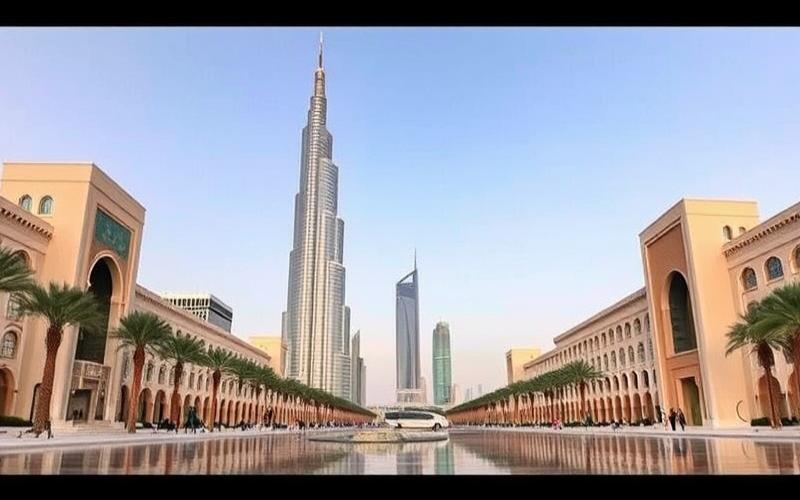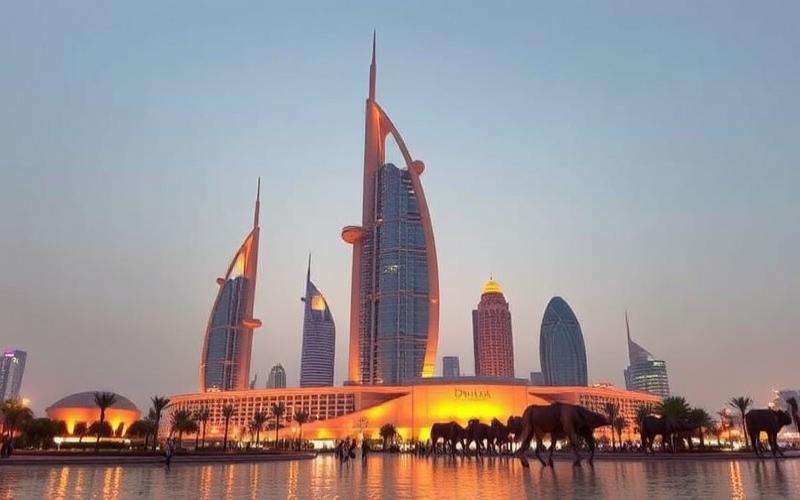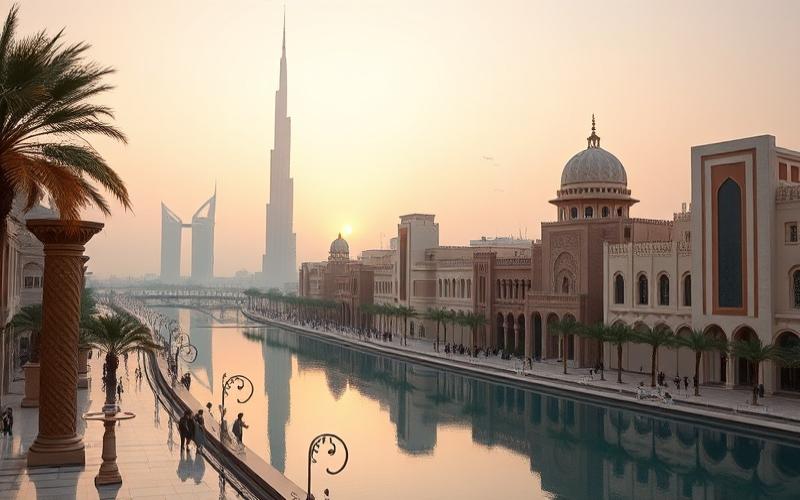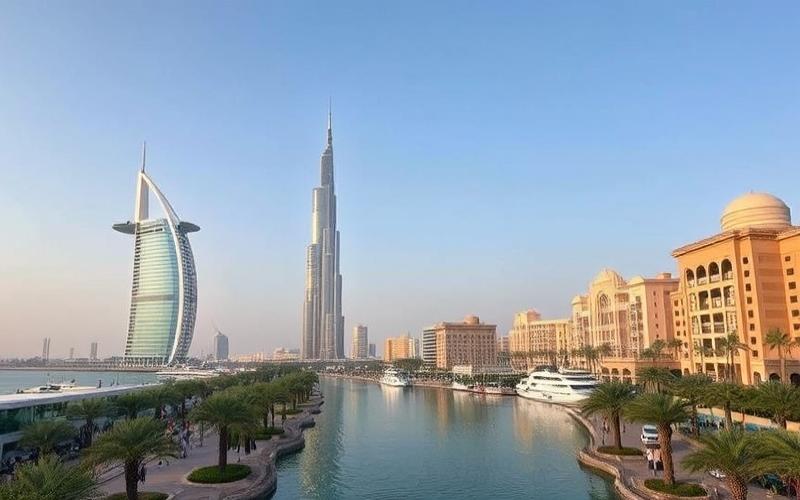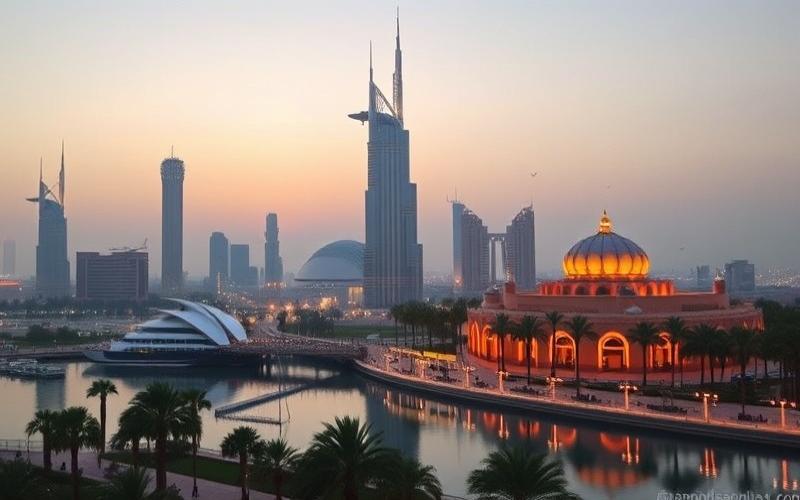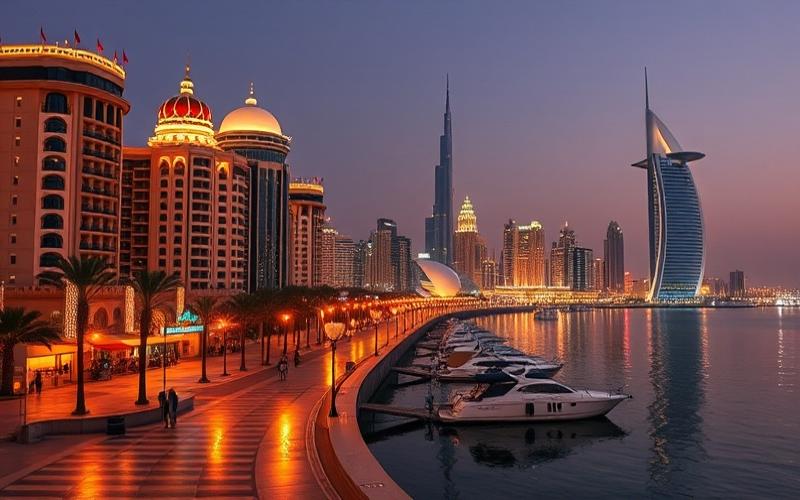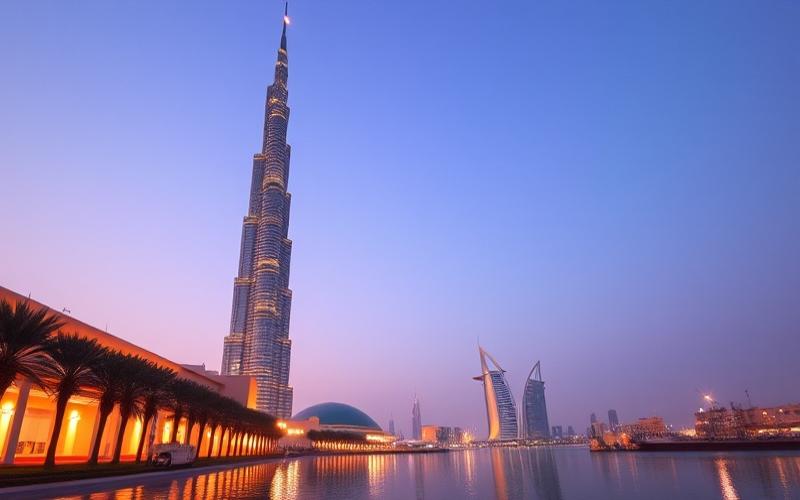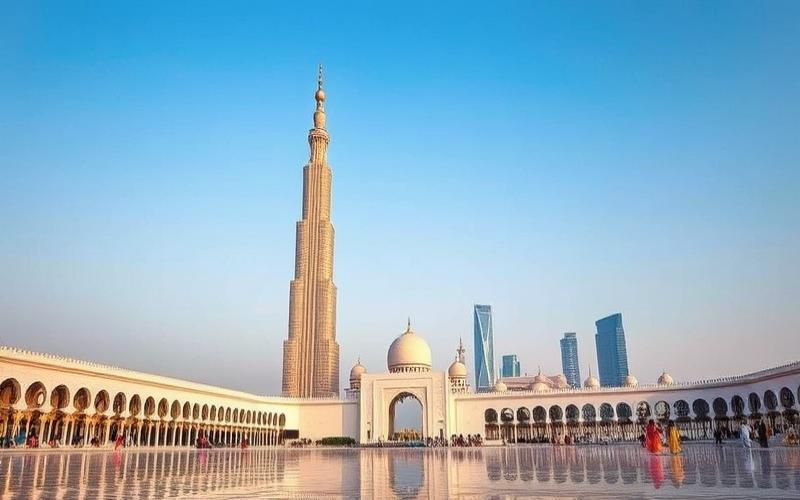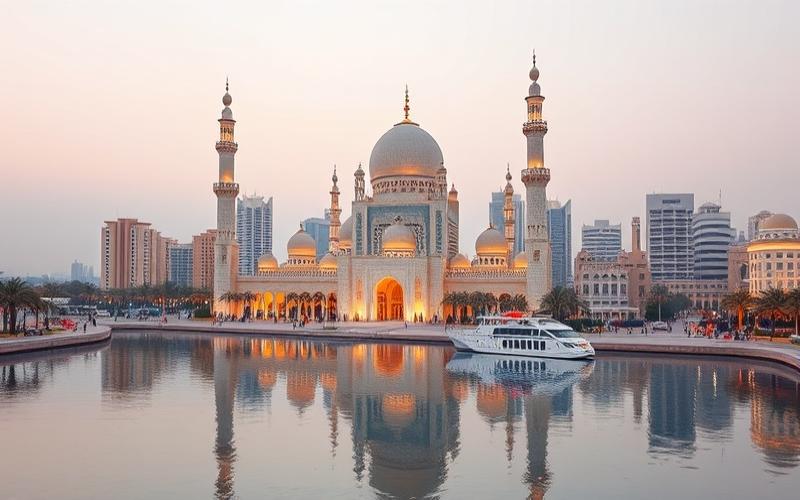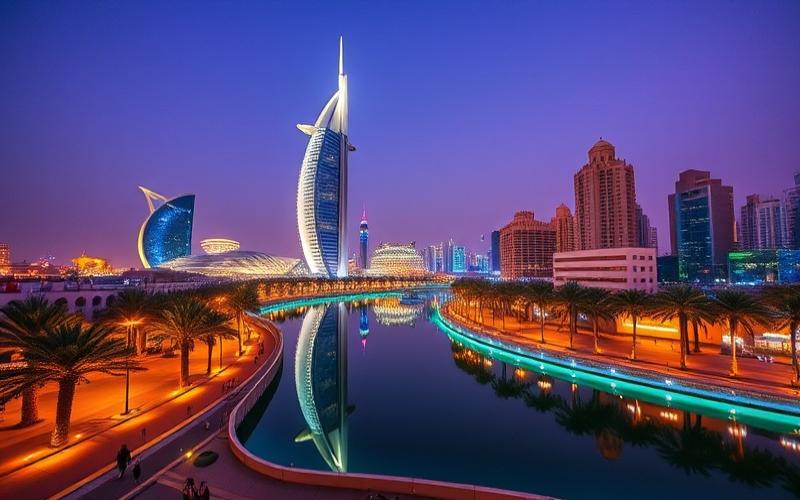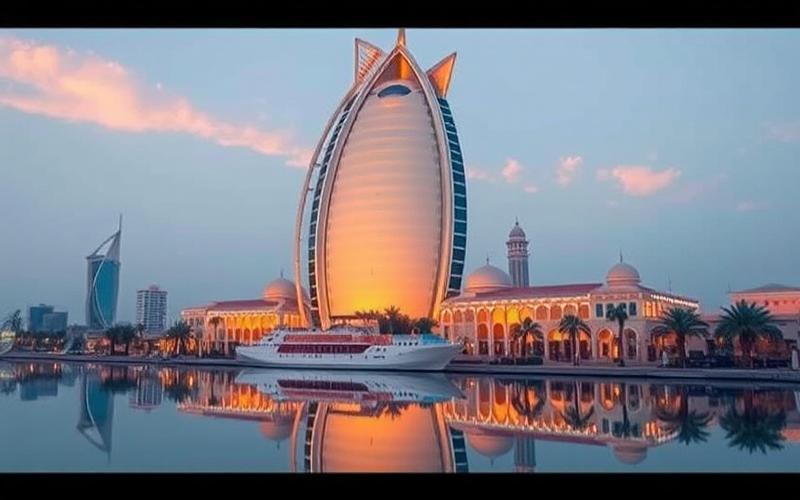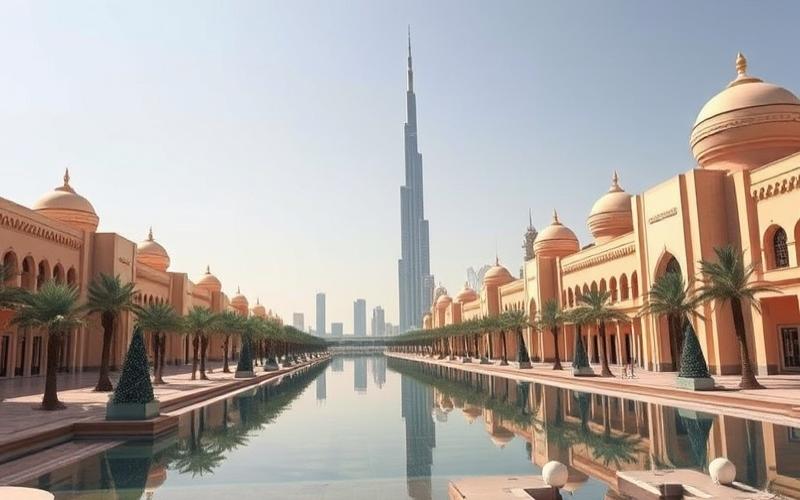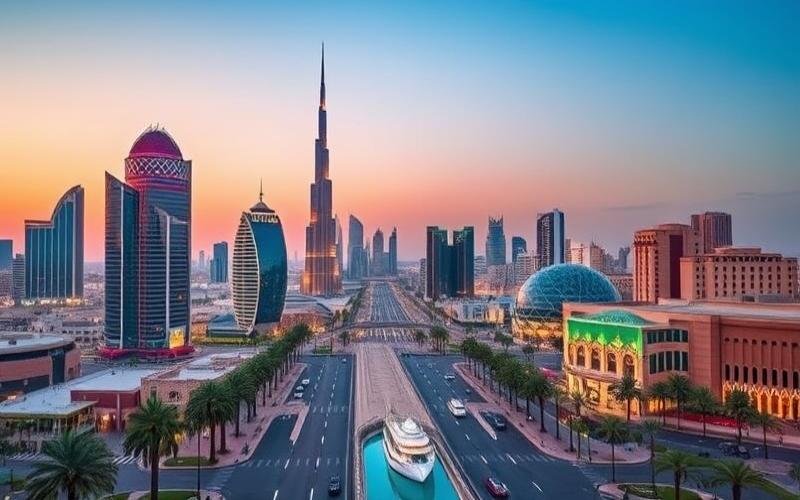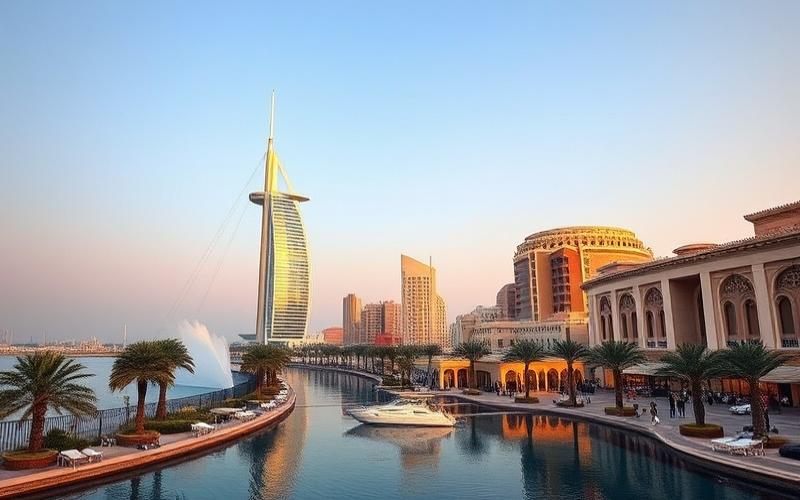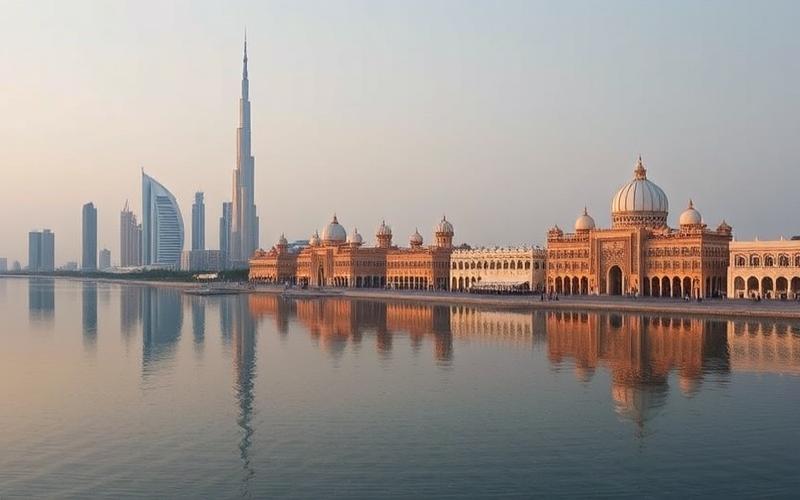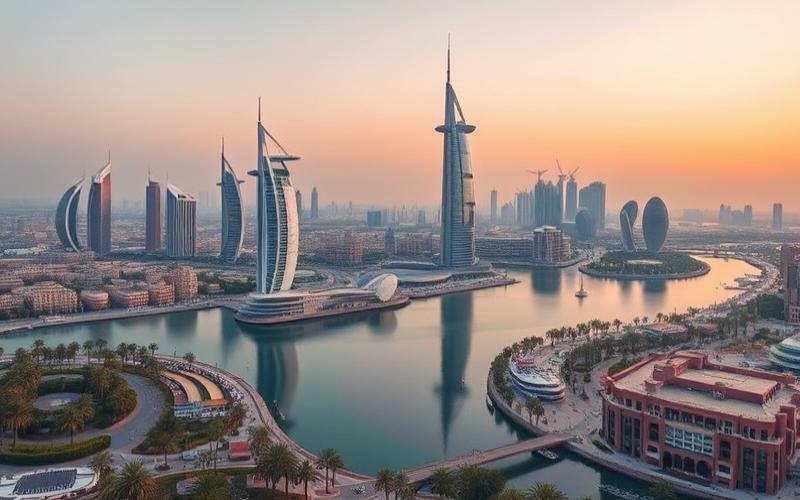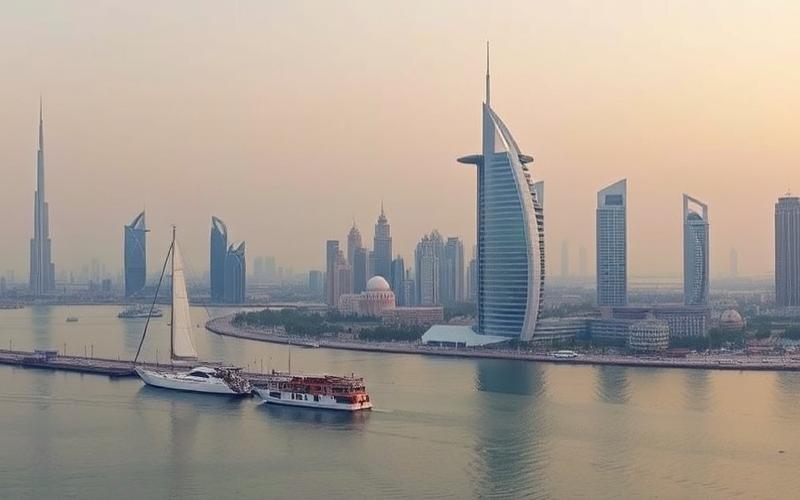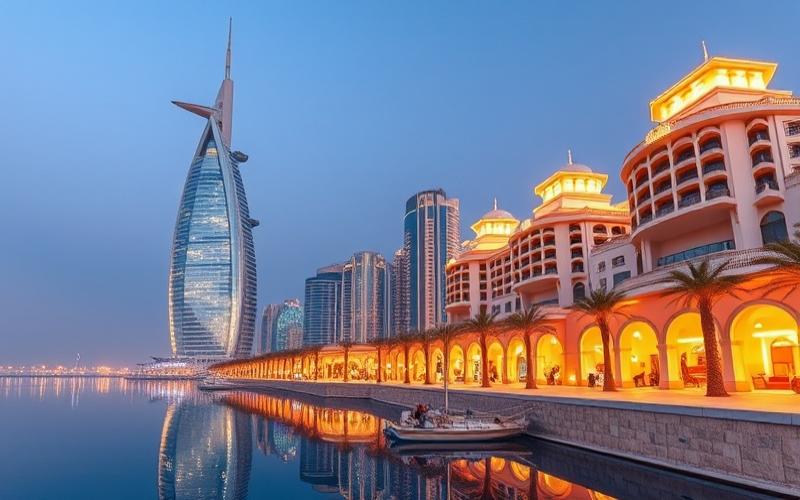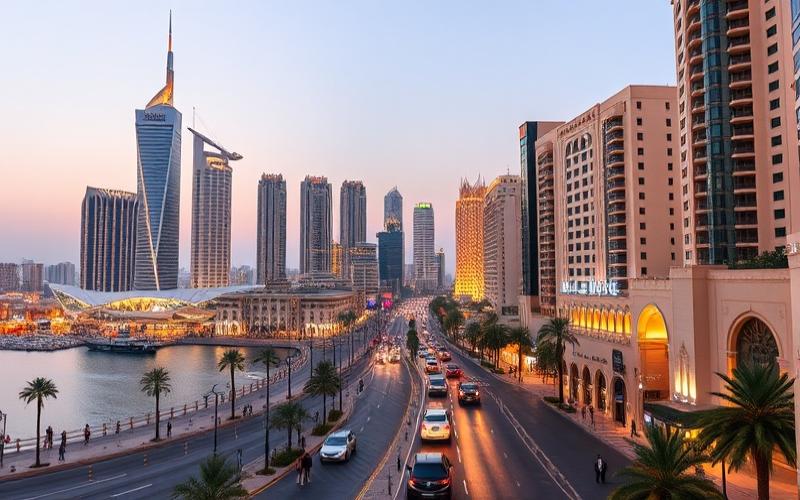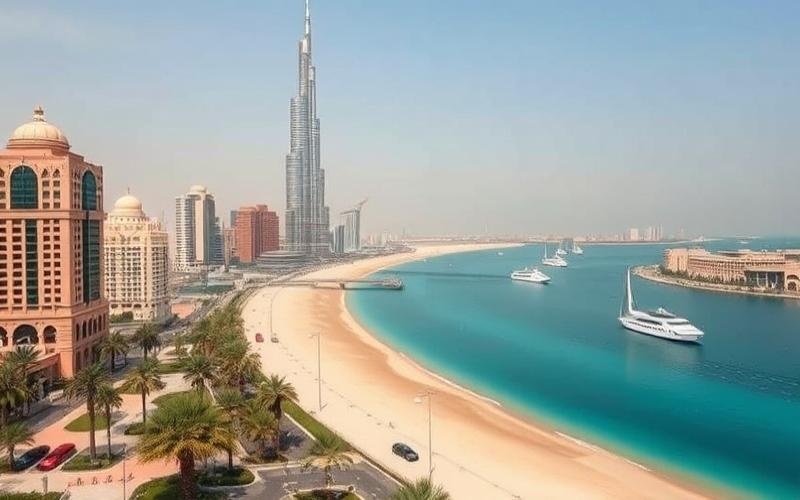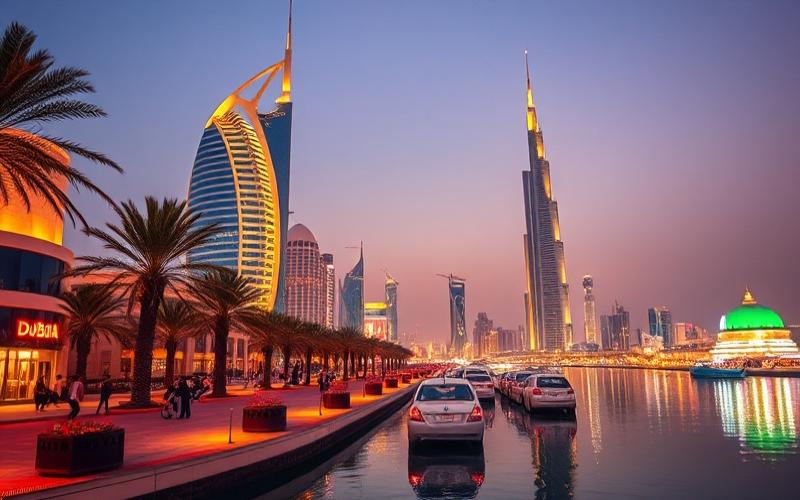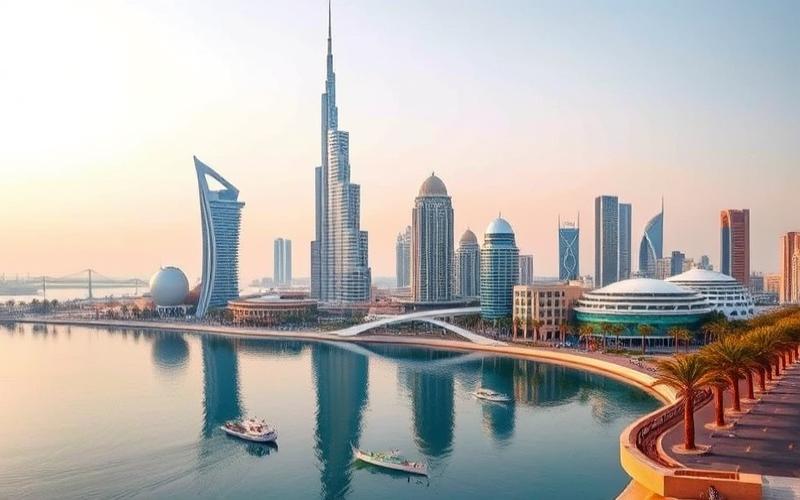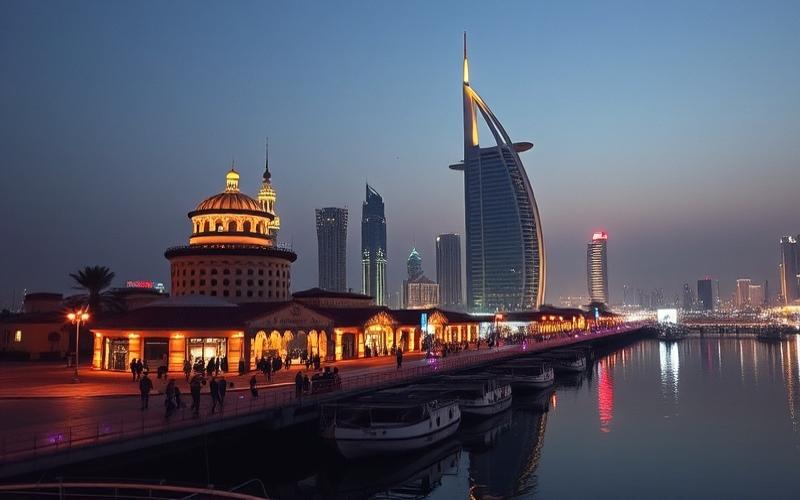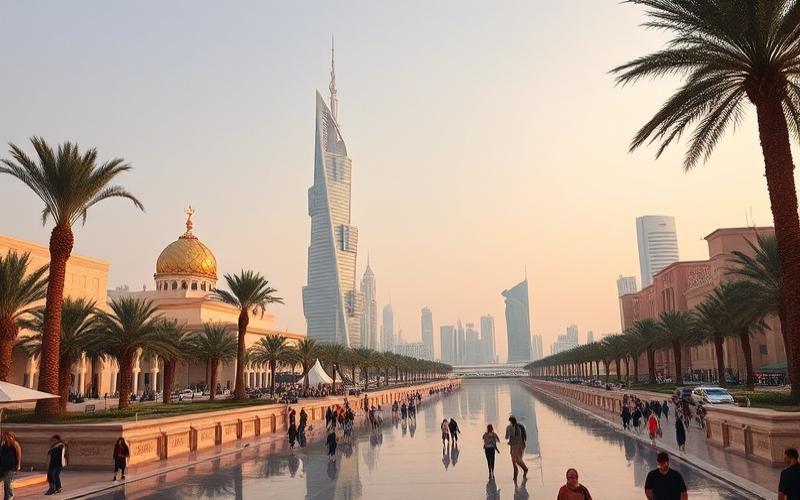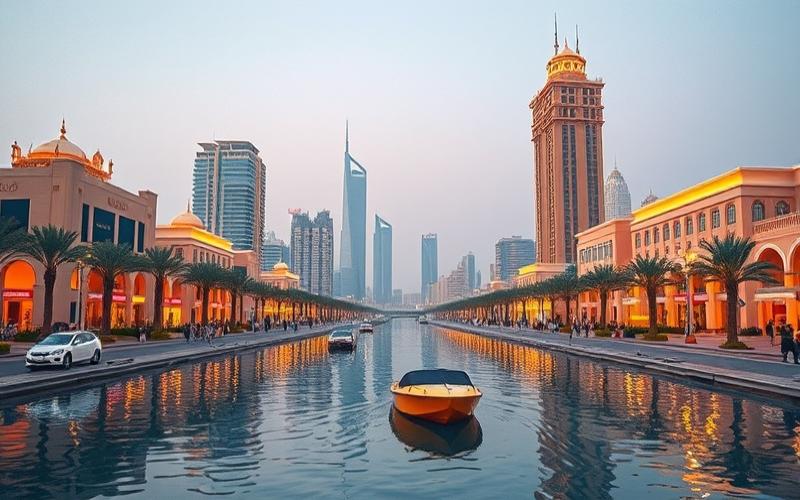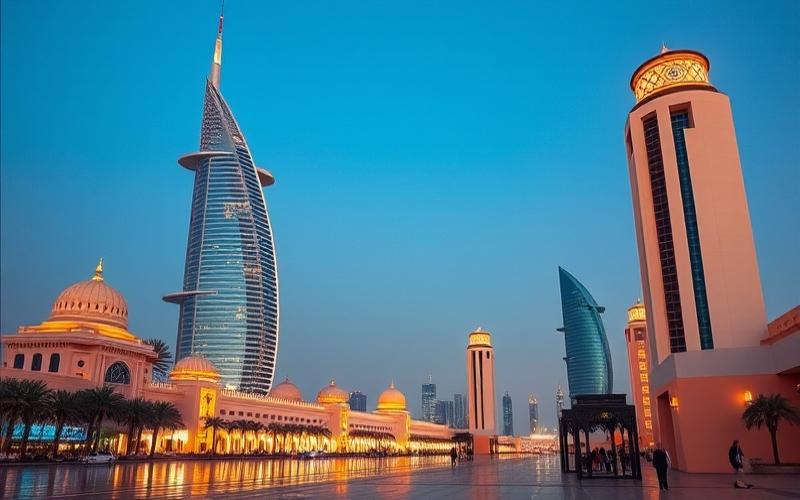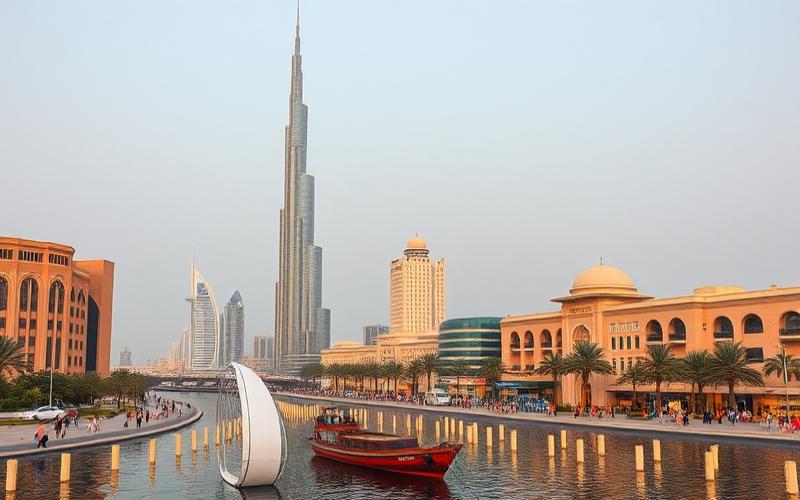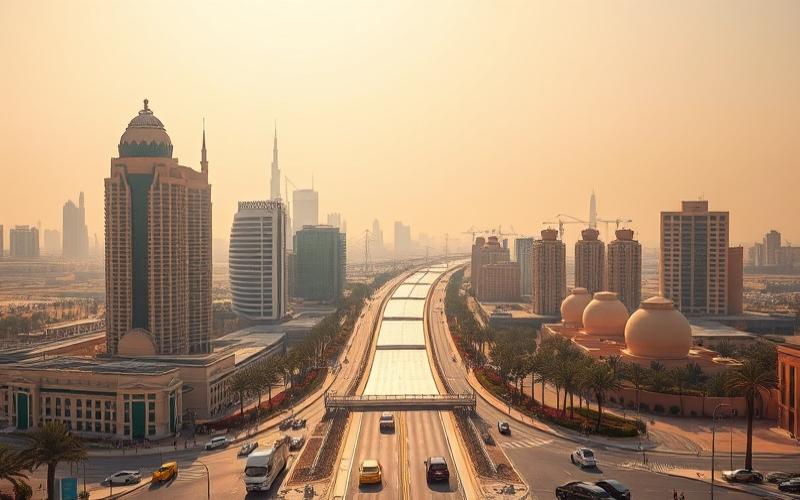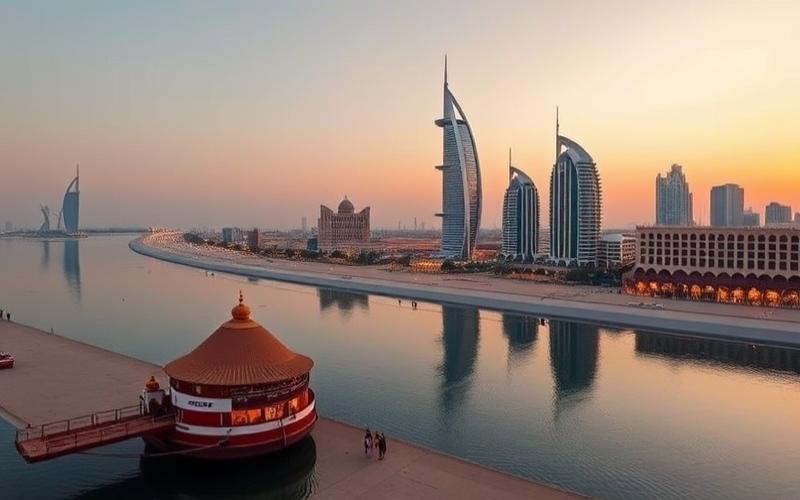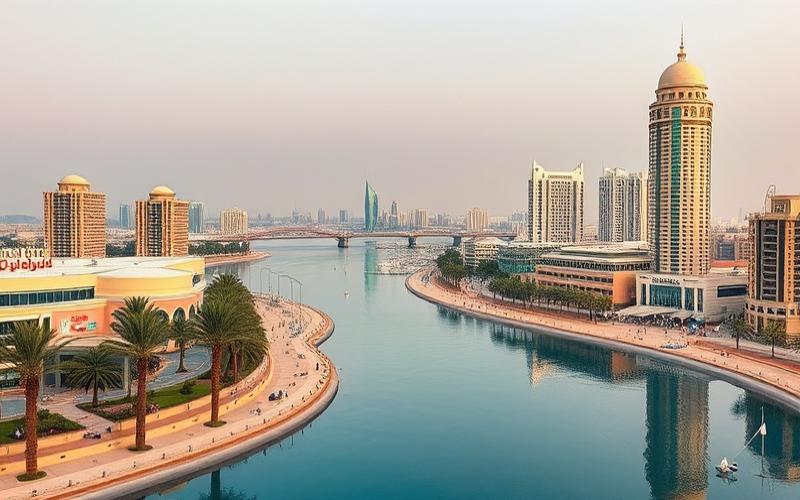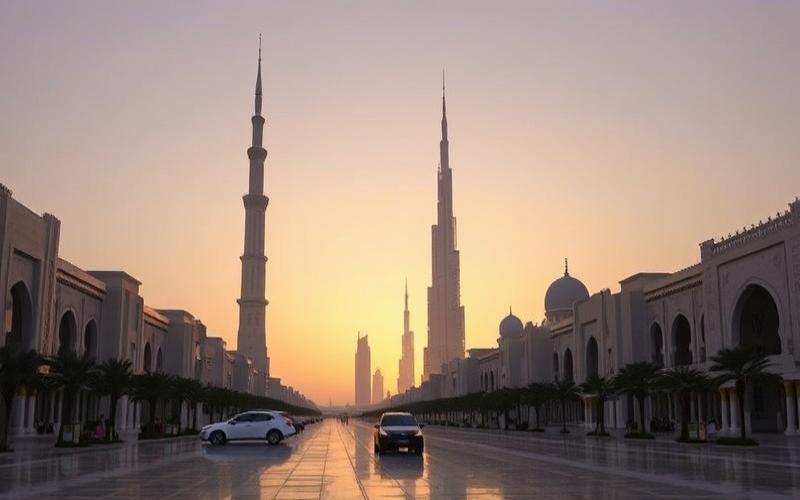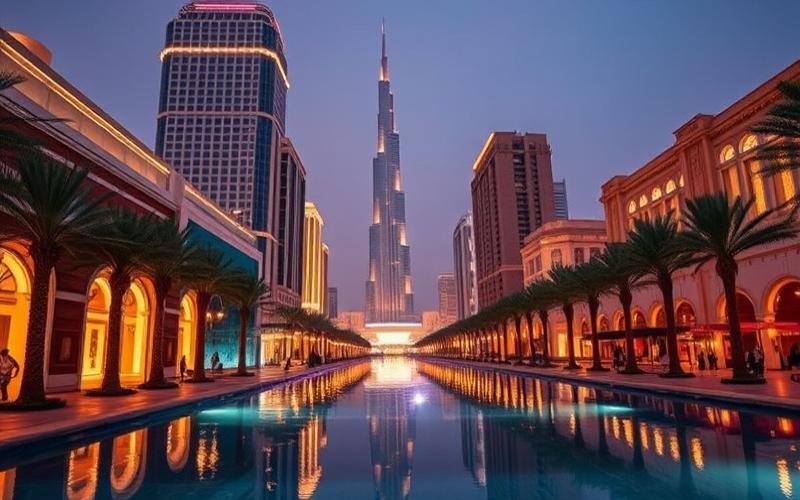
 Published on and written by Cyril Jarnias
Published on and written by Cyril Jarnias
Purchasing agricultural land in Dubai is attracting growing interest from international investors eager to benefit from the Emirate’s remarkable economic dynamism. However, navigating through the complex legal framework and cultural specificities can quickly become confusing.
This article provides a practical guide to demystify the acquisition process, focusing on the essential regulations to know, as well as tips for optimizing your investment while respecting local standards.
Whether you are a seasoned investor or a curious beginner, mastering these crucial elements will allow you to transform promising opportunities into tangible realities.
Overview of the Legal Framework for Buying Agricultural Land in Dubai
The legal framework governing the purchase of agricultural land in Dubai has undergone significant changes with the adoption of Law No. 6 of 2025, enacted on April 7, 2025, and effective from May 6, 2025. This new legislation constitutes the current regulatory foundation for the allocation of government land.
Law No. 6 of 2025 grants Dubai Municipality the authority to reclaim government land allocated to public entities, modify its location, or change its designation. This provision represents a major shift in land management in Dubai, including for areas with agricultural potential.
For foreign nationals wishing to acquire agricultural land, significant restrictions apply. Similar to other jurisdictions like Cyprus or Georgia, foreigners generally must obtain special permits, unless they hold permanent resident status. This policy aims to control strategic acquisitions by non-nationals.
Acquisition Process
- Preliminary verification of property rights and applicable restrictions
- Obtaining necessary permits from the relevant authorities
- Signing a contract before a notary
- Payment of taxes and transfer fees
- Registration with the land registry
The authorities involved in land transactions primarily include Dubai Municipality, which now plays a central role in the allocation and management of government land following the new legislation.
| Aspect | Details |
|---|---|
| Main Authority | Dubai Municipality |
| Applicable Law | Law No. 6 of 2025 |
| Effective Date | May 6, 2025 |
| Required Status for Foreigners | Special permit or permanent residence |
| Registration Process | National Land Registry |
Regarding tax incentives, although specific details for Dubai are not provided, other jurisdictions like Cyprus offer tax benefits for agricultural investors, including specific allowances for registered farmers. In Dubai, the new legislation might be part of a broader strategy to optimize land use, including for agricultural purposes.
Law No. 6 of 2025 represents a significant evolution of the regulatory framework that could have important implications for the agricultural land market in Dubai. This legislation appears primarily focused on streamlining the use of government land, with increased control exercised by Dubai Municipality over the allocation and reallocation of land.
Good to Know:
In Dubai, the purchase of agricultural land is primarily governed by Federal Law No. 11 of 1992, which regulates land transactions, with notable restrictions for foreign nationals often limiting direct ownership to designated areas. Buyers must obtain permits from the Dubai Land Department and, for certain projects, approvals from the Department of Agriculture. Notaries play a crucial role in validating sale deeds, while lawyers ensure the legal compliance of the process. Area limitations may apply, depending on specific agricultural zones and their intended use. Tax incentives on agricultural equipment and credit programs may be accessible, although they are usually reserved for residents. Recent regulatory changes aim to encourage foreign investment through freehold zones, but these arrangements are subject to strict conditions defined by the Emirati Land Department.
The regulatory framework for rural zoning in Dubai is part of the new territorial strategy initiated by the Urban Master Plan 2040. This system aims to optimize land management, enhance security, and ensure rational land use.
Types of Rural Zones and Land Use Rights
In Dubai, rural zoning distinguishes several categories of land:
- Agricultural zones: reserved for agricultural operations (farming, livestock), with limited possibility for ancillary constructions for operational needs.
- Rural residential zones: intended primarily for scattered housing or small village communities.
- Protected natural areas: spaces subject to strict restrictions to preserve the environment or local biodiversity.
- Mixed rural lands: allowing certain compatible economic activities (agritourism, local crafts) under conditions.
Each zone determines the associated usage rights. For example, in a strict agricultural zone, only buildings directly related to agricultural activity are permitted; any other use requires a specific administrative exemption.
Applicable Building Restrictions
The rules governing construction on rural land are precise and aim to preserve the natural setting as well as respect existing infrastructure.
| Criterion | Main Rules |
|---|---|
| Maximum Height | Generally limited to one story or 8 meters depending on the building type |
| Permitted Use | Only rural residential/agricultural or related services |
| Margins / Setbacks | Minimum distance between building/road: often ≥ 10 m |
| Proximity to Other Infra. | Mandatory respect for technical and environmental easements |
Projects must also respect the prohibition against significantly altering the natural topography of the site without special authorization.
Administrative Procedures for Obtaining a Permit
Implementing a project on rural land requires several administrative steps:
- Submission of an application to the Dubai Municipality’s Planning Department specifying the intended use and architectural plans.
- Submission of an environmental study if required (sensitive areas).
- Technical review: compliance with the Dubai Building Code and local land use regulations.
- Possible consultation with sectoral authorities (agriculture, environment).
- Public notification if the project is likely to impact neighbors/adjacent properties.
- Formal issuance of the permit after complete file verification.
For any project in a strict agricultural zone: a special permit must be obtained stating that the planned constructions are essential for agricultural operations; any unrelated commercial activity must be the subject of a separate, justified application.
Legal Consequences for Non-Compliance
Non-compliance with regulations exposes the offender to the following sanctions:
- Graduated financial fines based on severity
- Immediate suspension or even demolition of non-compliant structures
- Temporary/permanent ban on developing any new project on the concerned site
- Possible criminal prosecution in case of serious repeat offenses
In some recent cases reported during reinforced municipal inspections following the 2040 urban plan, several operators who had built illegally outside the defined built perimeter had to demolish their extensions without possible compensation or subsequent administrative recourse.
Concrete Example
In March 2025, in a peripheral rural area in the southwest, a developer attempted, without prior authorization and without respecting the minimum setback required from public roads (20 meters required), the rapid construction of mixed commercial greenhouses incorporating non-agricultural commercial premises attached; following a municipal audit and then an express judicial decision based on a clear violation of the Dubai Building Code and a total lack of prior consultation with the competent authorities, all additional structures were dismantled under official supervision — thus illustrating the increasing firmness regarding strict compliance with rural zoning since its latest regulatory reform.
Key Points Highlighted
- Any construction outside the expressly intended use per cadastral classification = exceptional procedure + mandatory detailed justification
- Increased controls since May 2025 targeting notably illegal extensions & fraudulent changes in land use
- Priority given to projects compatible with sustainability objectives & preservation of natural heritage
Good to Know:
In Dubai, rural zoning is governed by strict regulations that determine land use rights and construction restrictions on agricultural land. Rural areas are generally classified into specific categories, such as farm zones and agro-industrial zones, each with particular permitted uses. Construction restrictions include height limits for buildings, the obligation to maintain specific distances from existing roads and installations, as well as precise conditions regarding the types of structures allowed. To initiate any project, it is imperative to follow the administrative procedures for obtaining building permits, often involving multiple authorizations from the Dubai Municipality and other concerned agencies. Non-compliance with regulations can lead to severe sanctions, ranging from fines to legal prosecution. Recently, a notorious case saw a developer heavily penalized for erecting an unauthorized residential building on agricultural land intended exclusively for farm activities, illustrating the rigor with which these regulations are enforced.
Building Permits and Land Rights in Rural Areas of Dubai
To obtain a building permit in a rural area of Dubai, several steps and organizations are involved in the procedure. The regulations governing land rights, environment, taxation, and usage obligations for agricultural land also present notable specificities.
Procedure for Obtaining a Building Permit
List of main steps:
- Submission of the application to Dubai Municipality (DM), including detailed project plans.
- Submission of a technical file including notably soil study results and topographic maps.
- Obtaining complementary authorizations depending on the type of structure:
- Environmental licenses from the competent body,
- Permit from the Roads and Transport Authority for the use of public roads,
- Agreement for hazardous waste management,
- Authorizations related to networks (electricity, water, telecommunications),
- NOC (No Objection Certificate) issued by Dubai Civil Defence if necessary.
- Payment of required administrative fees.
- Periodic technical inspection during construction.
- Final issuance of the Building Completion Certificate allowing occupancy or operation.
Summary Table — Involved Organizations and Required Documents
| Organization | Main Documents Required |
|---|---|
| Dubai Municipality | Architectural plans, soil study |
| Roads and Transport Auth. | Road usage authorization |
| Dept. of Civil Protection | Fire safety certification |
| DEWA (energy/water) | Connection request |
| Etisalat/Du | Telecommunications |
| Environmental Authority | License/impact study |
The average approval time generally varies between a few weeks and several months depending on the project’s complexity.
Regulations on Rural Land Rights
The rules differ between nationals and foreigners:
- Emirati nationals can freely acquire all categories of land, including agricultural or rural.
- Foreigners are subject to restrictions: they can only purchase in certain designated areas (*freehold areas*), mainly urban; in classic rural or agricultural areas outside specific zones, they only have access to certain limited rights (long-term leasing for example).
Applicable Environmental Measures
- Frequent obligation to obtain a prior environmental license during the initial submission,
- Strict compliance with regulations concerning the treatment/discharge of wastewater and waste from the construction site,
- Possible application of standards related to ecological preservation or sustainable uses on agricultural soils.
Legal Obligations Related to Agricultural Use
Non-exhaustive list:
- Use conforming to the official zoning defined by the DM;
- Effective maintenance of agricultural activity if specified in the title;
- Frequent prohibition of conversion without explicit authorization to another use;
Tax Implications
Ownership and development generate various taxes/charges:
- Initial payment during land registration
- Possible annual fees related to certain public services
- Specific tax upon potential change of use or resale
Available Resources to Assist Buyers
Several options exist to assist with administrative procedures:
- Official digital platforms providing interactive guides (Dubai Municipality)
- Specialized firms in local real estate law offering personalized advice
- Expert services offered by certain accredited private companies facilitating complete administrative setup until effective obtainment of all necessary permits
Good to Know:
To obtain a building permit in a rural area of Dubai, it is essential to consult the Dubai Municipality and the Department of Land and Property to ensure that the plans comply with local regulations. You will need to submit documents such as the survey plan and architectural plan, and the approval timeline can take several weeks. Land rights in rural areas impose restrictions on foreigners, including the obligation of partnerships with Emirati citizens to hold agricultural land. Environmental protection measures, such as the preservation of sensitive ecological areas, must be respected. Buyers have the legal obligation to use the land according to prescribed agricultural uses and to obtain the necessary environmental approvals. On the tax level, the ownership and development of rural land can generate specific taxes, but the absence of income tax in the UAE is a notable advantage. Resources like real estate consultants can offer valuable assistance in navigating the complex administrative procedures.
Tips to Avoid Risks When Buying Non-Buildable Land
Before any land acquisition in Dubai, it is essential to carefully consult the local regulations on land use. The Emirati authorities impose strict rules regarding zoning, permits, and land designation, whether for agricultural or buildable land. Local legislation may notably restrict certain uses or require specific licenses to develop or operate a piece of land.
A meticulous verification of the property title is indispensable to ensure that the desired property is free of ongoing disputes, unresolved mortgages, or other restrictions that could hinder its future use. The Dubai Land Department (DLD) plays a central role in this process: it ensures the official registration of properties and controls the legality of real estate transactions. The involvement of a Trustee (notary accredited by the DLD) also allows for rigorous validation during the property transfer.
| Actor | Role in the Transaction |
|---|---|
| Dubai Land Department | Official registration and dispute management |
| Trustee (accredited notary) | Documentary verification and finalization of the transfer |
| Real Estate Agent | Drafting the agreement and contractual control |
Engaging a recognized professional — an experienced real estate agent, lawyer specialized in local property law, or accredited notary — constitutes an additional guarantee to secure the operation. These experts conduct the necessary preliminary checks: regulatory compliance, complete legal analysis of the title, and identification of potential easements.
The risks associated with buying non-buildable land are multiple:
- Total or partial prohibition on construction.
- Severe limitation regarding the types of development allowed.
- Inability to obtain a commercial permit.
- Administrative blockage linked to a prior absence of defined use.
- Rapid depreciation in case of difficult resale.
These limitations can have the following financial consequences:
- Partial or total loss of invested capital.
- Additional legal fees in case of prolonged disputes.
- Long-term immobilization without possible profitability.
Recommended Preventive Measures:
- Systematically consult a lawyer specialized in local property law before any signature.
- Request from the DLD an updated extract from the cadastre confirming the exact legal situation of the desired property.
- Verify that the targeted land is not subject to temporary urban planning restrictions nor affected by a suspensive administrative measure related to future urban development.
- Require from the seller all documents attesting that no legal action is underway on this specific plot.
Taking these precautions from the initial stages significantly limits the legal and financial risks during an agricultural land purchase in Dubai.
By following these recommendations structured around local regulatory checks, you maximize your chances of avoiding any major pitfalls during your real estate investment in the Emirate.
Good to Know:
To avoid risks when buying non-buildable land in Dubai, it is crucial to thoroughly understand the local regulations on land use, as these can include restrictions that limit development or commercial use. Always check property titles to detect potential disputes or restrictions that could compromise your future rights. It is recommended to seek the assistance of real estate or legal professionals to conduct thorough preliminary checks and avoid unpleasant surprises. Non-buildable land can carry significant financial risks, such as rigid usage limitations, making the investment potentially less profitable. To prevent legal or financial complications, consult a lawyer specialized in property law in Dubai for expert advice and take adequate preventive measures before finalizing the purchase of agricultural land.
Disclaimer: The information provided on this website is for informational purposes only and does not constitute financial, legal, or professional advice. We encourage you to consult qualified experts before making any investment, real estate, or expatriation decisions. Although we strive to maintain up-to-date and accurate information, we do not guarantee the completeness, accuracy, or timeliness of the proposed content. As investment and expatriation involve risks, we disclaim any liability for potential losses or damages arising from the use of this site. Your use of this site confirms your acceptance of these terms and your understanding of the associated risks.


